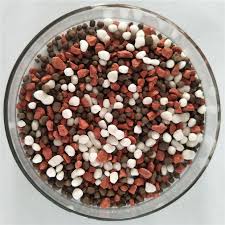
Nov . 20, 2024 12:36 Back to list
best organic fertilizer for vegitable plants manufacturers
Choosing the Best Organic Fertilizer for Vegetable Plants A Guide for Manufacturers
The organic gardening trend has gained significant momentum over the past few years, as more growers prioritize sustainable practices and seek to minimize chemical usage. As a manufacturer of organic fertilizers, it's crucial to understand the needs of vegetable plant growers and offer products that effectively support healthy plant growth while being environmentally friendly. This article delves into the factors to consider when developing the best organic fertilizer for vegetable plants, as well as examples of effective ingredients and potential benefits.
Understanding Vegetable Plant Needs
Vegetable plants require a range of nutrients to thrive, primarily nitrogen (N), phosphorus (P), and potassium (K), commonly referred to as NPK. Additionally, secondary nutrients such as calcium, magnesium, and sulfur, along with trace elements like iron, manganese, and zinc, are necessary for optimal plant health. Understanding the specific nutrient requirements of different vegetable varieties is essential for creating tailored organic fertilizers that meet these needs.
Key Characteristics of Effective Organic Fertilizers
1. Nutrient Release Patterns Organic fertilizers can offer slow- or fast-release nutrient options. Slow-release formulas ensure a steady supply of nutrients over time, which can be beneficial during the growing season. Conversely, fast-release fertilizers may be appropriate for quick nutrient boosts, especially in cases where plants show signs of deficiency.
2. Soil Health Improvement Good organic fertilizers not only provide essential nutrients but also enhance soil structure. Ingredients such as compost, well-rotted manure, and various organic matter improve soil aeration, water retention, and microbial activity, which is crucial for healthy plant growth.
3. Eco-Friendly Ingredients The best organic fertilizers use natural ingredients sourced sustainably. Popular options include fish emulsion, bone meal, blood meal, seaweed extracts, and cover crops like clover and vetch. Each of these ingredients has unique benefits, offering nutrients while also supporting beneficial organisms in the soil.
4. pH Balance The pH level of soil affects nutrient availability, and many vegetable plants prefer slightly acidic to neutral soils (pH 6.0 to 7.0). Manufacturers should consider creating products that help maintain this balance, possibly by incorporating lime or sulfur-based additives to adjust pH appropriately.
Popular Organic Fertilizer Ingredients
best organic fertilizer for vegitable plants manufacturers

1. Composted Manure Rich in nitrogen and other essential nutrients, well-aged manure from cows, chickens, or horses makes a fantastic amendment for vegetable gardens. It is crucial to ensure the manure is adequately composted to kill pathogens and reduce weed seeds.
2. Bone Meal This is an excellent source of phosphorus and calcium, which supports root development and flowering. Bone meal is particularly beneficial for young plants and flowering vegetables.
3. Kelp Meal Derived from seaweed, kelp meal contains trace minerals and hormones that can stimulate plant growth and enhance resistance to pests and diseases. It's also known to improve soil microbial activity.
4. Fish Emulsion A liquid fertilizer high in nitrogen, fish emulsion is an excellent choice for leafy vegetables such as lettuce, broccoli, and spinach. Its rapid absorption allows for quick nutrient uptake.
5. Green Manures/Cover Crops When grown and then tilled back into the soil, these crops not only improve soil structure but also add organic matter and nutrients. Options include legumes, which fix nitrogen in the soil, and grasses, which improve soil aeration.
Marketing Best Practices
As a manufacturer, effective marketing strategies can help in highlighting the superior advantages of your organic fertilizers. Providing educational content through blogs, videos, and workshops can help growers understand the benefits of your products. Additionally, testimonials and case studies from satisfied customers can build trust and encourage potential buyers to make a purchase.
Building a robust brand centered around sustainability and plant health will resonate with eco-conscious consumers. Certifications such as OMRI (Organic Materials Review Institute) can enhance product credibility and appeal in the competitive organic market.
Conclusion
In the ever-evolving landscape of organic gardening, offering high-quality organic fertilizers for vegetable plants can set your brand apart. By considering nutrient needs, sustainable ingredients, and soil health, you can create successful products that support growers in their pursuit of vibrant, healthy vegetable crops. Emphasizing education, sustainability, and proven results will resonate with your target market, helping you establish a strong reputation as a leader in organic fertilizer manufacturing.
-
Premium Organic Manure Compost for Eco Gardens
NewsAug.01,2025
-
Organic 10-10-10 Fertilizer | Balanced Plant Nutrients
NewsJul.31,2025
-
Premium Amino Acid Fertilizer | Rapid Plant Growth Booster
NewsJul.31,2025
-
10 10 10 Fertilizer Organic—Balanced NPK for All Plants
NewsJul.30,2025
-
Premium 10 10 10 Fertilizer Organic for Balanced Plant Growth
NewsJul.29,2025
-
Premium 10 10 10 Fertilizer Organic for Balanced Plant Growth
NewsJul.29,2025
